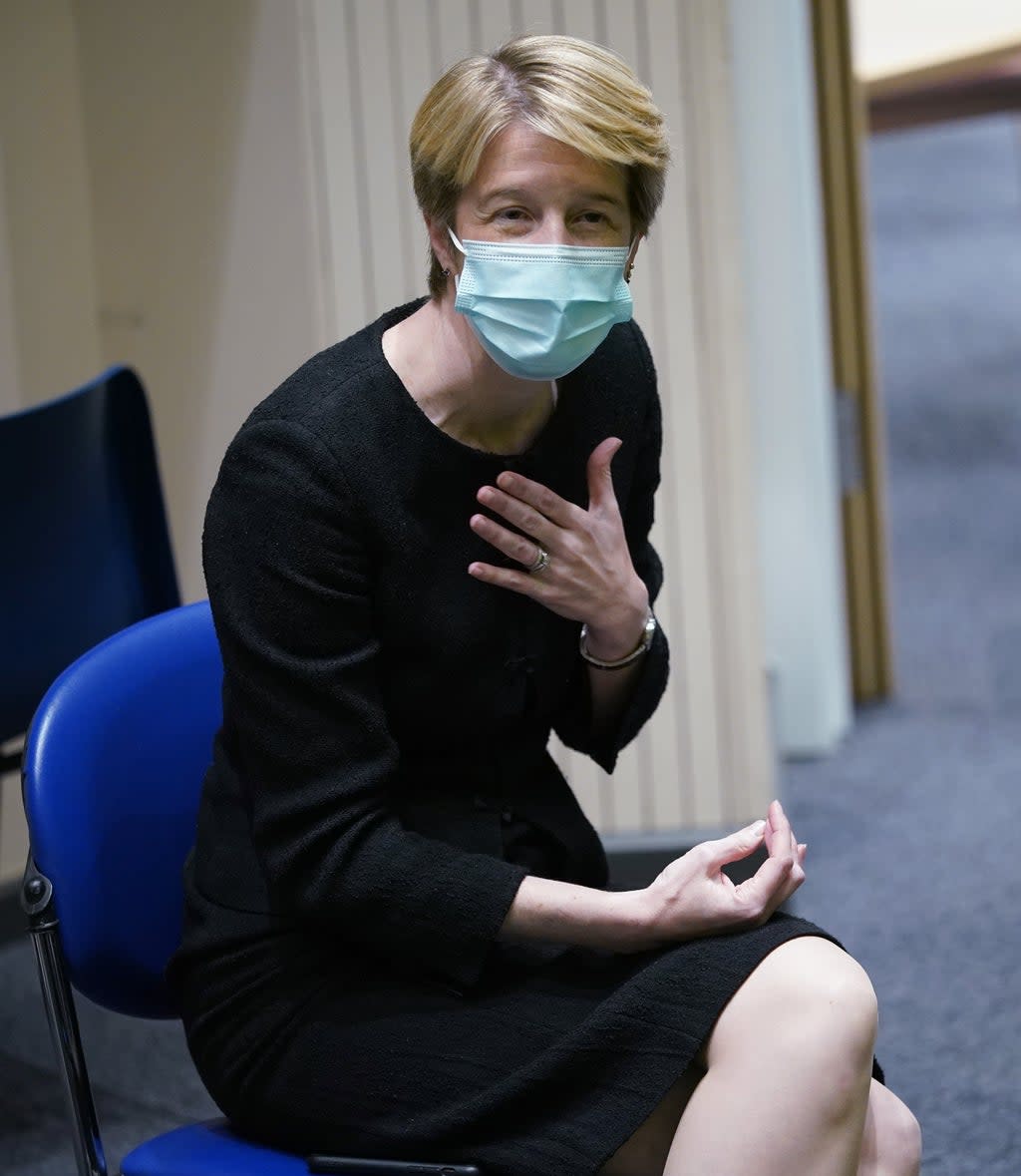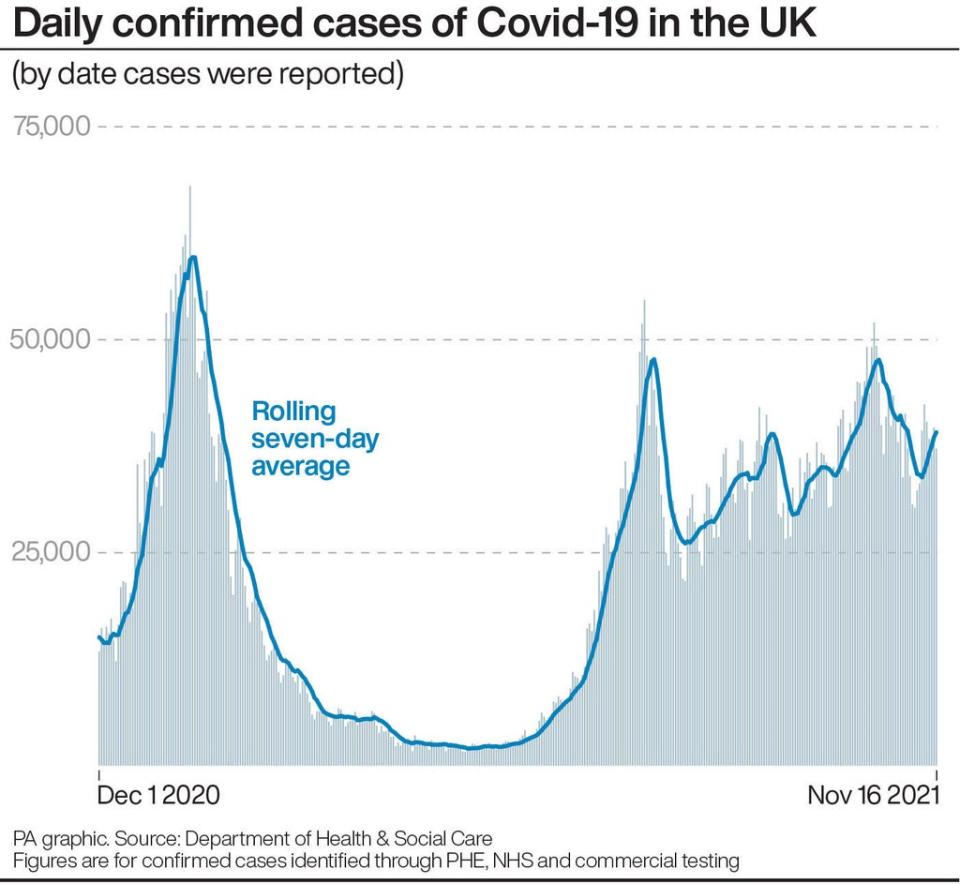NHS prepping for annual Covid boosters

The NHS is preparing for the prospect of an annual Covid-19 booster vaccine programme – should one be required, the head of the NHS in England has said.
It is still not clear whether Covid-19 vaccine top-ups will be needed every year – similar to the annual winter flu jab programme – but the NHS is already putting plans in place should it be required to deliver a yearly vaccine campaign, Amanda Pritchard said.
The chief executive of NHS England also suggested that there could be “further expansions” to the Joint Committee on Vaccination and Immunisation (JCVI) advice on vaccines.

On Monday, the JCVI recommended that the booster programme should be extended to include all adults aged 40 and over, as well making new recommendations for second jabs for 16 and 17-year-olds.
In a speech to the NHS Providers annual conference, Ms Pritchard said: “We had the latest advice yesterday from the JCVI on extending (boosters) to the over-40s, as well as giving second doses to 16 and 17 year olds, and I think we can expect further expansions in the future.
“We are already thinking about how we can do annual booster vaccines, if they are needed.”
Ms Pritchard urged people to take up vaccination invitations “as soon as possible” when called, highlighting that a third of people take between two and five weeks to come forward and book after they are contacted about a booster jab.
Meanwhile, the Department for Health and Social Care said that 13 million booster or third jab have been given so far across the UK – including over one million in the last three days.
Professor Mike Tildesley, a member of the Scientific Pandemic Influenza Modelling group (Spi-M), said that repeated vaccinations could be offered “for years to come” to keep Covid-19 at a bay.
He told Sky News on Monday: “In the longer term, Covid is likely to become endemic and we probably are going to have to manage it with repeated vaccination campaigns for years to come.”
Get your Covid-19 #booster when called or walk into a vaccine centre now if it’s been 6 months since your 2nd dose – no need to book an appointment #grabajab https://t.co/8bjLCoQvrm pic.twitter.com/VVJNjiai2C
— NHS North East London CCG (TNW) (@NHS_TNW) November 16, 2021
The number of Covid-19 patients requiring care in hospitals win England was “heading in the right direction”, she said, adding: “Though there are still thousands of very ill patients in our hospitals receiving expert care – yesterday 6,864.”
Ms Pritchard said that the NHS was facing a “winter like no other” but vaccines were “preventing a far worse situation, with the boosters helping to tackle waning immunity”.
But the job of the vaccination programme was “not yet done”.
“Our message has to continue to be: please come forward as soon as possible when it is your turn,” she added.
She encouraged NHS leaders to redouble efforts to encourage vaccine hesitant staff to get their Covid-19 jab.
If you’re eligible, you can pre-book your COVID-19 booster appointment from five months (152 days) after your second dose.
Visit https://t.co/cAaKk5Pk78 or call 119 to book. pic.twitter.com/Q84ZPb0si5— NHS Calderdale CCG (@calderdaleccg) November 16, 2021
“To those colleagues who are yet to take up that offer, I would urge you to do so as soon as you can, to protect yourself, your families and your patients too,” she said.
“And to you as leaders – particularly clinical leaders – it’s crucial that we redouble our efforts to support those of our colleagues who aren’t medically exempt and who are still wavering on whether to get their first Covid vaccine.
“Not just because of the intent set out by the Government last week, but because we believe it’s the right thing to do, because we care about them and our patients, we want them to be as safe as possible and frankly we need every member of NHS staff to be there for patients.”
Ms Pritchard also highlighted how the phrase “necessity is the mother of innovation” had proven true during the pandemic.
She said that a national video consultation platform for hospital services saw a “huge expansion of people choosing this option” which led to a reduction of 2.1 million hours of waiting time for patients.
But she said that as technology evolves the NHS must “always be mindful of digital exclusion and literacy” and ensure that there are “non-digital routes available, that are as good, for those who want them and need them.”
It comes as the Government said a further 214 people had died within 28 days of testing positive for Covid-19 as of Tuesday, bringing the UK total to 143,159.
Separate figures published by the Office for National Statistics show there have now been 168,000 deaths registered in the UK where Covid-19 was mentioned on the death certificate.
As of 9am on Tuesday, there had been a further 37,243 lab-confirmed Covid-19 cases in the UK, the Government said.
Read More
Wales joins Scotland in vaccinating half of 12 to 15-year-olds
Companies referred by Tory figures won share of £1.7bn of PPE contracts
Number of pupils off school due to Covid-19 fell after October half-term

 Yahoo News
Yahoo News 
